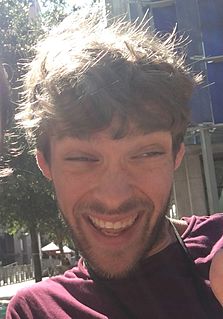A Quote by Marc Morial
We've lost our city. I fear it's potentially like Pompeii.
Related Quotes
I fear being like everyone I hate, I fear failure, I fear losing control. I love balancing between chaos and control with everything I do. I always have a fear of going one way or another, getting lost in something, or losing everything to get lost in. And I fear being a completely acceptable sheep in society.
Fear is like a little garden spider that makes us jump back or the poor lost bee on the steering wheel that we blame for our automobile wreck. The problem in fear is our response - the way we treat animals or insects that frighten us. . . . Fear is also the universal scapegoat we blame when we take flight from intimacy or shrink up inside ourselves in a thousand little ways.
There is no hate without fear. Hate is crystallized fear, fear's dividend, fear objectivized. We hate what we fear and so where hate is, fear is lurking. Thus we hate what threatens our person, our liberty, our privacy, our income, our popularity, our vanity and our dreams and plans for ourselves. If we can isolate this element in what we hate we may be able to cease from hating... Hate is the consequence of fear; we fear something before we hate; a child who fears noises becomes the man who hates them.
We are born into this time and must bravely follow the path to the destined end. There is no other way. Our duty is to hold on to the lost position, without hope, without rescue, like that Roman soldier whose bones were found in front of a door in Pompeii, who, during the eruption of Vesuvius, died at his post because they forgot to relieve him. That is greatness. That is what it means to be a thoroughbred. The honorable end is the one thing that can not be taken from a man.
I think when people think of Pompeii, they think it was just destroyed by the volcano. Yes, it was the eruption of the volcano that eventually caused the pyroclastic surge that swept over Pompeii and destroyed it for good. But also, they had to face the effects of a very extreme earthquake and a tidal wave that swept in from the Bay of Naples.
Vanish. Pass into nothingness: the Keats line that frightened her. Fade as the blue nights fade, go as the brightness goes. Go back into the blue. I myself placed her ashes in the wall. I myself saw the cathedral doors locked at six. I know what it is I am now experiencing. I know what the frailty is, I know what the fear is. The fear is not for what is lost. What is lost is already in the wall. What is lost is already behind the locked doors. The fear is for what is still to be lost. You may see nothing still to be lost. Yet there is no day in her life on which I do not see her.































